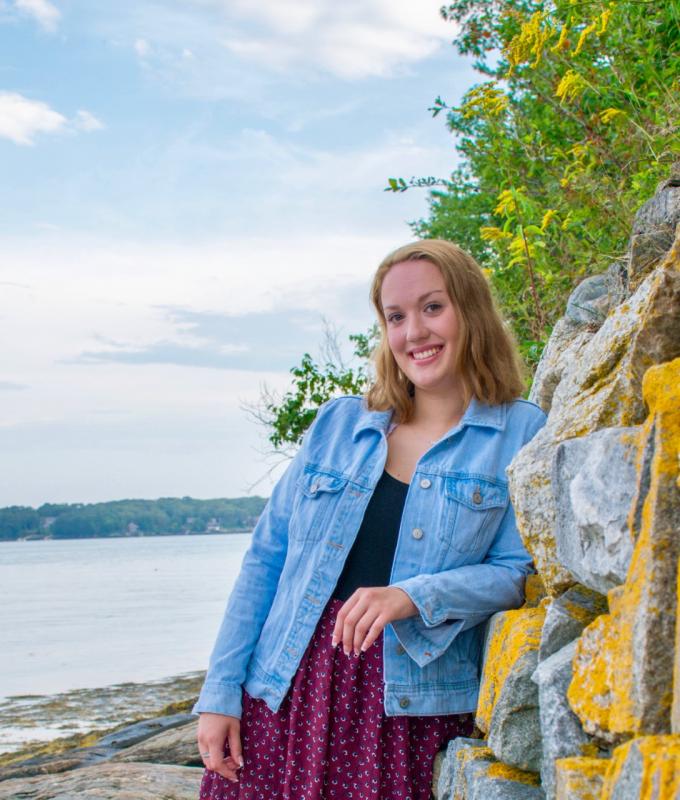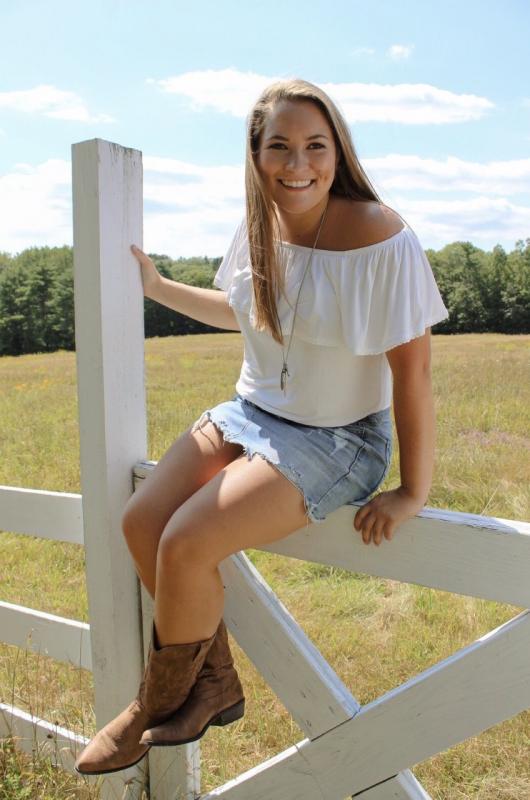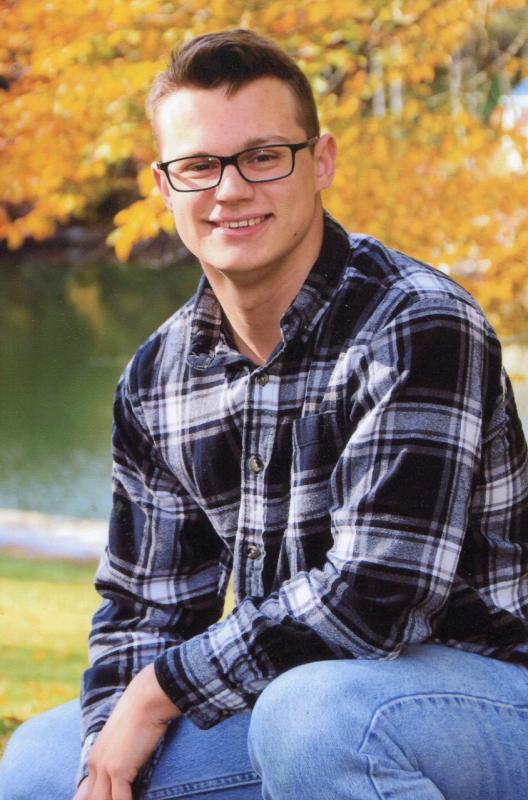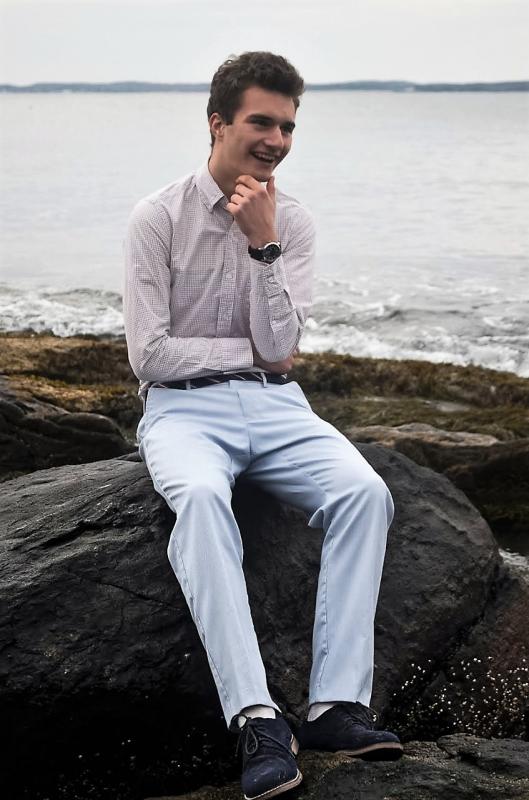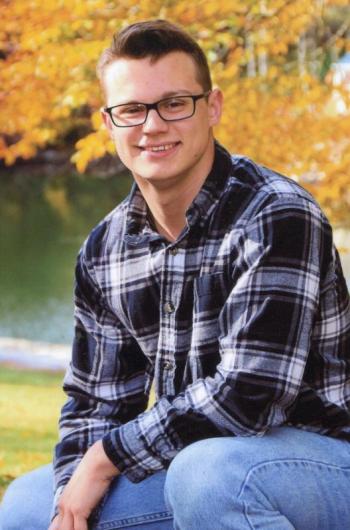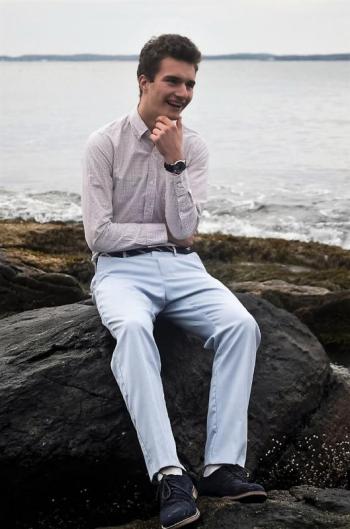BRHS grads reflect on their first year of college in pandemic
This wasn’t how it was supposed to be.
That was the thought in Ally Nein’s head as she stepped out of her childhood bedroom to tell her mom she had finished her first year at college. Nein had only spent three months at her “dream school,” Wheaton College in Massachusetts, before a COVID-19 outbreak in November shut down the campus’s already limited facilities. When students were given the option to go home, Nein and her roommate, fellow Boothbay Region High School (BRHS) graduate Maddy Faulkingham, decided to finish the year remotely.
Nein and Faulkingham are two of the thousands of college freshmen whose senior of high school year abruptly went remote due to the pandemic. “I left on a Friday and never went back again, and that was really hard for me because I’m super sentimental,” said Nein. “It didn’t feel like closure. I didn’t feel like I was done.”
As the pandemic continued, students found their college experiences were also not what they had envisioned. Nein and other former BRHS students said this contributed to a similar feeling of lack of closure.
“It wasn’t really a warm welcome from the faculty, it wasn’t really a warm welcome from anywhere. It just felt rushed through and lazy and people didn’t want to do much,” said Ben Rumney. Rumney stayed on-campus for both semesters at University of Maine in Orono, a decision he now regrets.
Rumney explained, he decided to stay on-campus his second semester, so he could get one-on-one help from professors and because the college had implied tuition costs would be lowered to reflect the reduced facilities and activities. It was too late to back out of on-campus living by the time he realized teachers wouldn’t be available in-person and tuition wouldn’t be reduced.
“It was a lot of promises given and a lot of promises failed. It kind of made me lose trust in the college,” said Rumney.
The Boothbay Register has sought comment from UMaine on Rumney’s experience.
Rowan Kristan, who attends Maine Maritime Academy, had been looking forward to traveling. He hoped to participate in his school’s travel-boat squad to compete against other maritime schools across New England and New York. The event was canceled.
“When I thought about college I thought about friends and sports and clubs and literally being in a classroom,” said Nein. “And I really didn’t have any of that.”
The lack of activities also made socialization difficult. Students were worried about getting sick or spreading the coronavirus. Rumney also said students at his school who were found partying were fined or kicked out. However, having to limit close contacts helped some students make friends with people in their dorms.
At Syracuse University, Hali Goodwin lived with other engineering majors which made studying “really easy.”
Nevertheless, the mundane day-to-day schedule took a toll on students’ mental health. “I can easily go through my entire semester by just waking up, going to class, getting food, coming back, studying, going to sleep,” said Rumney. “Rinse and repeat. It’s very sad that’s what it was.”
Rumney’s first roommate went home due to the circumstances. His second roommate almost did.
Nein and Faulkingham also reported increased mental distress during their first semester and improvement when they went home.
These experiences are part of a nationwide trend; “95% of college students have experienced negative mental health symptoms as a result of COVID-19-related circumstances,” according to a BestColleges.com survey. Almost half of participants believe the mental health effects have also affected their education.
“It was tough to constantly have academic pressure without getting a break with social events and such,” said Goodwin. “This was tough on a lot of students’ mental health, especially those of us in engineering with really tough classes.”
Rumney recalled his friends and him wondering if they were “stupid” because they were not retaining the information in their online classes. Most BRHS alumni interviewed said they were not prepared for online college classes, because when they went remote their senior year most classes were canceled or they worked independently.
However, students tried to supplement their education where they could. Faulkingham, who is majoring in biology with a pre-veterinary medicine track, worked at Boothbay Animal Hospital during her second semester. She said the experience helped make up for the lab work she missed being remote. Nein, a psychology and early childhood education dual major, took a job at the YMCA’s daycare.
“I learned so much in the few months that I worked there and I’m so thankful for that experience. I think everything happens for a reason and I kind of took a crappy situation and made it as positive as I could,” said Nein.
Despite the difficulties of their first year, students are looking forward to returning to a more open campus as COVID-19 restrictions continue to be lifted.
“I really hope that by next semester things will be back to normal, and we hopefully won’t have to wear masks around campus and that clubs and activities will be back up and running,” said Goodwin. “I’m excited to be more involved with campus life.”
Event Date
Address
United States

